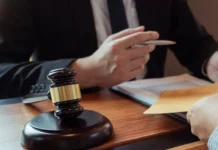
Real estate is a significant and valuable asset, making it an attractive target for fraudsters seeking financial gain through deceptive practices. Real estate fraud encompasses a range of illegal activities aimed at manipulating property transactions, often resulting in financial losses and legal consequences for victims. In this comprehensive article, we delve into the world of real estate fraud, exploring its various forms, signs, and preventive measures.
Real estate is a significant and valuable asset, making it an attractive target for fraudsters seeking financial gain through deceptive practices. From forged documents to fictitious property listings, real estate fraud encompasses a range of illegal activities aimed at manipulating property transactions. The consequences can be dire, leading to financial losses and legal battles for victims. In this comprehensive article, we delve into the world of real estate fraud, exploring its various forms, signs, and preventive measures, all while highlighting the pivotal role of a real estate fraud attorney in navigating this intricate landscape.

Real estate fraud doesn’t discriminate; it can affect buyers, sellers, and investors across the spectrum. Unscrupulous individuals may prey on the vulnerability of first-time homebuyers or exploit the complexities of investment deals. The sophistication of modern technology has also opened new avenues for cybercriminals to engage in digital real estate fraud, including hacking into email accounts to divert funds.
In addition to financial losses, real estate fraud can have far-reaching consequences. Victims may face challenges in clearing their names from fraudulent mortgages or titles, while lenders may be left with non-performing loans. The credibility of the real estate industry as a whole can suffer, eroding trust between buyers, sellers, and professionals.
Given the intricacies of real estate transactions and the evolving tactics of fraudsters, it’s clear that a proactive approach is crucial. Beyond the legal expertise of a real estate fraud attorney, individuals can protect themselves by conducting thorough research on properties and parties involved. Verifying ownership, checking for liens, and scrutinizing documents can prevent falling into fraudulent schemes.
Forms of Real Estate Fraud

Mortgage fraud ─ this involves falsifying information on mortgage applications to obtain loans or properties under false pretenses. Examples include inflating property values, submitting fake documents, and misrepresenting income.
Title Fraud
In title fraud, criminals forge property ownership documents or manipulate property titles to steal ownership of a property. They may then attempt to sell the property to unsuspecting buyers.
Foreclosure Fraud
Fraudsters prey on distressed homeowners facing foreclosure by offering fake foreclosure rescue services. They promise to save the property in exchange for upfront fees but fail to deliver on their promises.
Rental Scams
Fraudsters create fake rental listings for properties they don’t own and collect deposits or rent payments from victims. When the victims discover the fraud, they’re left without a place to live and financial losses.
Equity Skimming
In this scheme, fraudsters convince homeowners to transfer the property’s ownership or title to them in exchange for false promises of mortgage relief. The homeowners are then left without their property and still obligated to pay the mortgage.
The role of a real estate fraud attorney cannot be overstated. These legal professionals specialize in identifying, addressing, and preventing fraudulent activities within the real estate realm. They possess the knowledge and experience needed to navigate the complex legal processes involved in real estate transactions and can provide invaluable guidance to clients.
Ultimately, the battle against real estate fraud requires a collective effort from government agencies, legal professionals, and consumers. By staying informed about the risks and staying vigilant throughout transactions, individuals can safeguard their real estate ventures and contribute to a more transparent and trustworthy real estate landscape. Whether you’re a potential buyer, seller, or investor, partnering with a skilled real estate fraud attorney is an essential step towards securing your interests and protecting your assets.
Signs of Real Estate Fraud

- Too good to be true deals ─ Be cautious of deals that seem too good to be true, such as significantly below-market prices or extremely high returns on investments.
- Pressure to act quickly ─ Scammers often pressure victims to make rushed decisions without giving them time to conduct due diligence.
- Unusual payment requests ─ Beware of requests for wire transfers or payments to third parties instead of established institutions.
- Lack of proper documentation ─ Always demand legitimate and verified documentation for property ownership, title, and transaction details.
- Third-party interference ─ Be cautious if a third party claims they’re handling the transaction on behalf of the buyer or seller.
Preventive Measures
- Research ─ Thoroughly research properties, owners, and real estate agents before making any commitments.
- Verify documents ─ Confirm the legitimacy of property documents and titles through official channels.
- Use reputable agents ─ Choose reputable real estate agents and attorneys with a track record of honesty and professionalism.
- Secure transactions ─ Whenever possible, use secure payment methods and verify banking details directly with trusted sources.
- Check property history ─ Investigate the property’s history, ownership transfers, and any legal disputes.
If you suspect real estate fraud, report it to local law enforcement, the appropriate real estate regulatory authorities, and consumer protection agencies. Prompt reporting can help prevent further victims and hold fraudsters accountable.
In conclusion, real estate fraud poses a significant threat to both individuals and the real estate industry as a whole. Staying informed about the various forms of fraud, recognizing warning signs, and taking preventive measures are essential to safeguarding your investments and properties. By being vigilant and cautious, you can help protect yourself and others from falling victim to these deceitful practices.
















